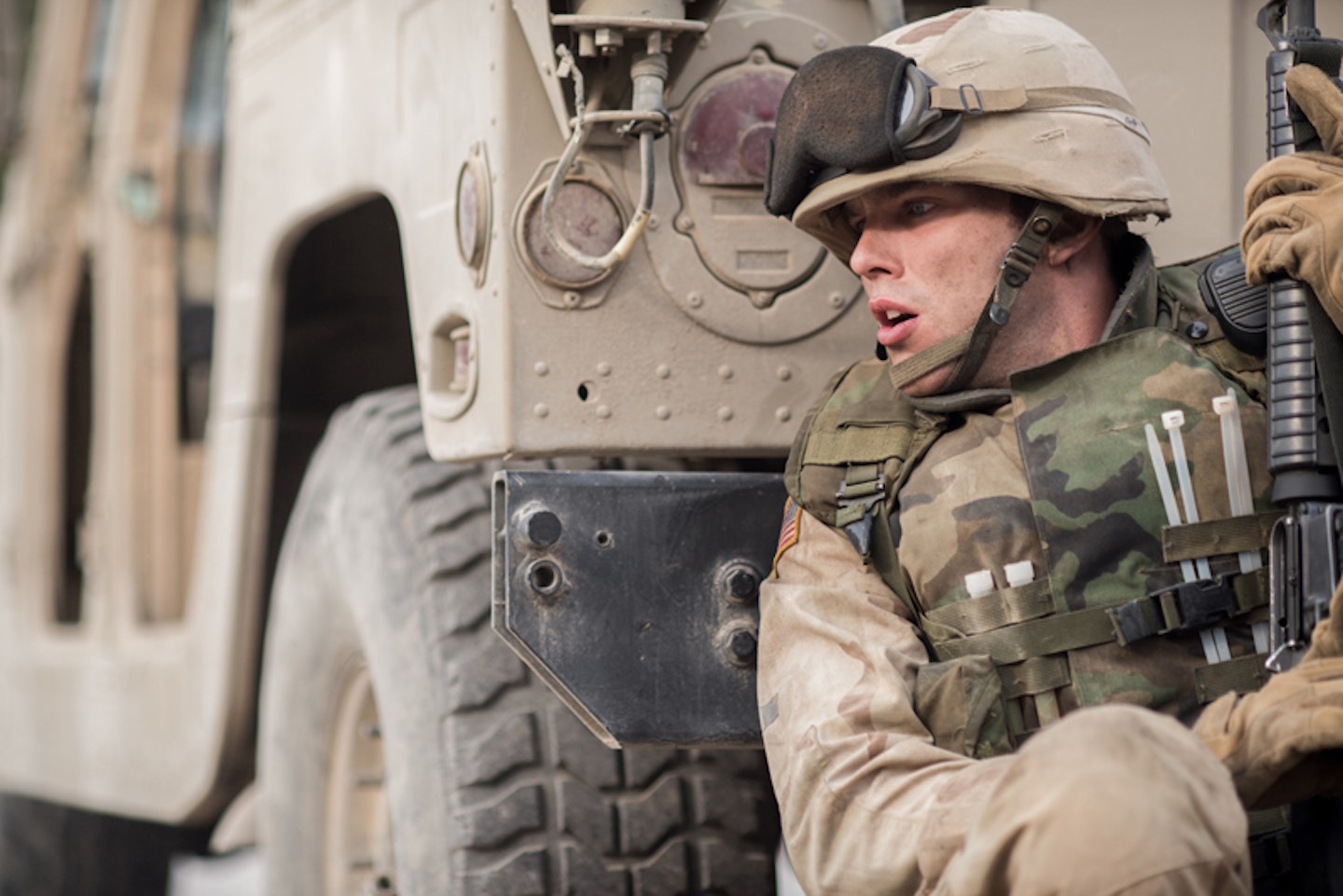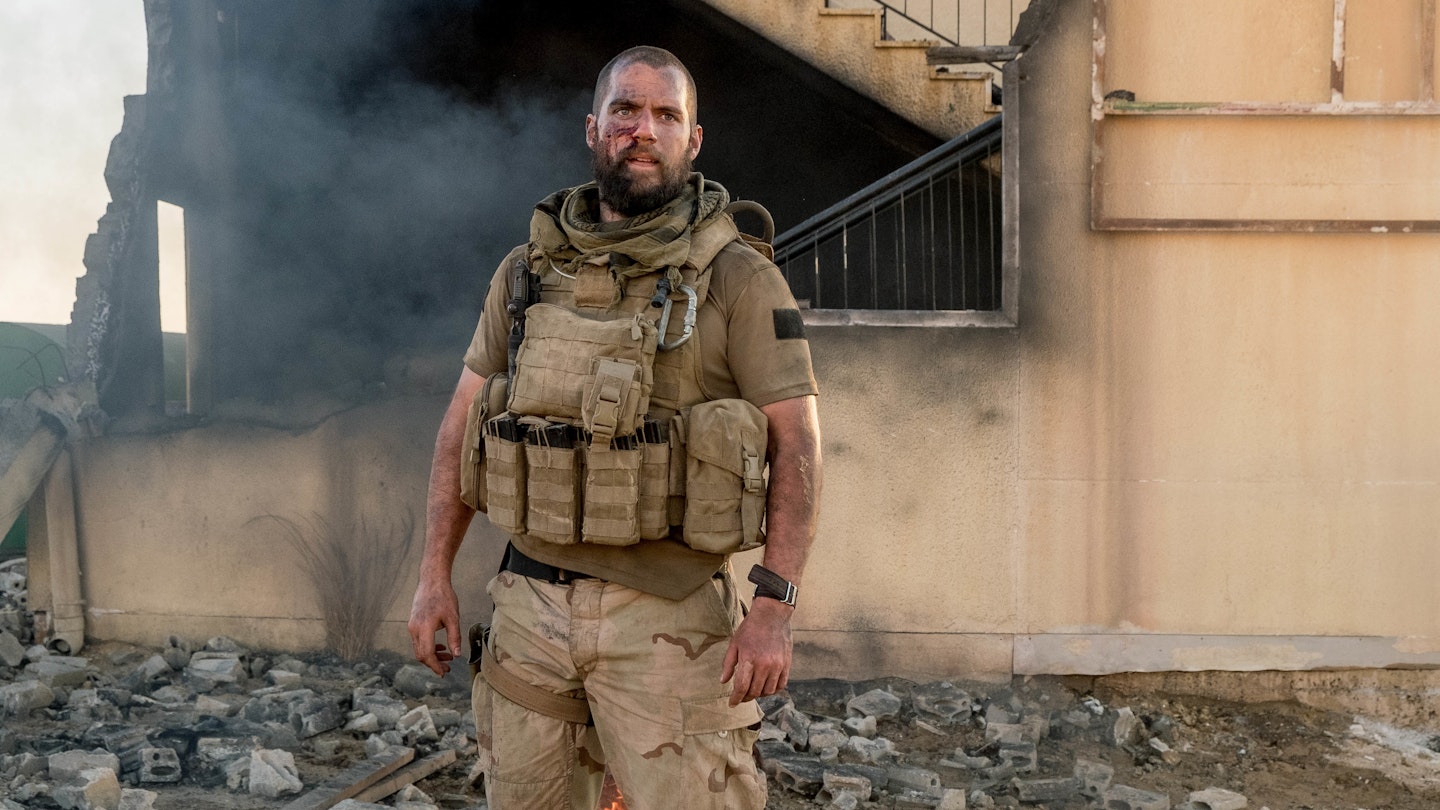Perhaps hoping to quash any expectations that this is a fun family-friendly movie about beach holidays, Sand Castle opens brutally and to the point. In an arid military outpost just outside of Iraq, we meet US Army Private Matt Ocre (Nicholas Hoult). “I don’t belong here,” he says in voiceover, “and I’m ashamed.” Then he promptly slams his own hand repeatedly in a car door, a self-imposed injury in an effort to get sent home. Unsurprisingly, it’s about as effective a ploy as Edmund Blackadder sticking a pencil up his nose and saying, “Wibble.”
It never quite gets past the familiarity of its own enterprise.
The character of Ocre is loosely based on the real-life experiences of screenwriter Chris Roessner, who signed up to the Army Reserves two months before 9/11, never expecting to actually have to go to war. Hoult sells both how unsuited he is to the life he’s signed up for, and the knot of dread he’s feeling in the pit of his stomach. This is a war-movie type we’ve seen before, most obviously in All Quiet On The Western Front: a quiet, thoughtful beta male, attempting to make sense of a thoughtless conflict while surrounded by chest-puffing alphas.
Briskly informed by his army doctor that a broken hand is no impediment to combat, Ocre joins the platoon of Sergeant Baker (Logan Marshall-Green). Matching the gung-ho mood of the time back in DC, Baker’s platoon wastes no time in efficiently ‘liberating’ Baghdad, and enjoying the spoils of the supposed victors. But they’re soon faced with the consequences of their actions.

It’s here that Sand Castle struggles to find its focus. After initially promising a deeply personal account from a grunt on the front line, it attempts to widen the scope. The platoon’s efforts to restore water to the city of Baqubah is inevitably met by belligerence from the local populace. Frustration fizzes on both sides.
There’s no doubting the authenticity of Roessner’s story, but this idea — the hopelessness of an occupying force who would rather not be there, and an occupied people who’d rather they left, too — has been explored in films as far back as 1966’s The Battle Of Algiers. It’s unclear what fresh ideas, if any, Sand Castle has in its dusty tank.
Still, despite the sense of over-familiarity, there remains a perfectly competent war movie lurking underneath. Director Fernando Coimbra seems more confident filming battles over bartering, and wrings decent tension from a couple of fierce set-pieces: an early scene sketches the initial Baghdad invasion with a breathless tracking shot; elsewhere, a roadside ambush conveys the sense of immense stress felt in any war zone where traditional rules of engagement don’t apply.
The Iraq War remains, as one character puts it, a “clusterfuck”: a mess on a humanitarian scale, from which the world is still recovering. But just as the film acknowledges the futility of the US-led campaign, it never quite gets past the familiarity of its own enterprise.



